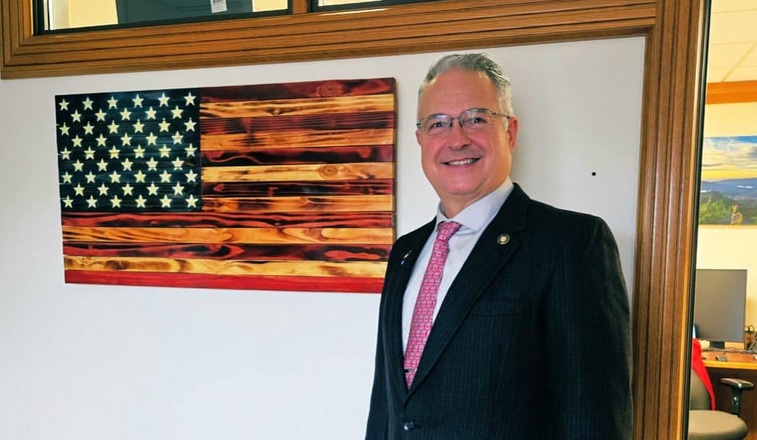
By Oregon State Representative Ed Diehl
Press Release,
Senate Bill 1154-1 represents a sweeping overhaul of Oregon’s groundwater policy, threatening local decision-making, property rights, and transparency. This amendment grants unelected agencies excessive power to inspect private property, restrict rural development, and impose mandates without clear scientific evidence or due process. Farmers, homeowners, and rural communities will bear the brunt of these bureaucratic overreaches. We must act now to preserve liberty, privacy, and local control.
The hearing for this bill is scheduled for this coming Tuesday April 8th, and we urgently need your voice. Submit written testimony or register to testify in person to ensure lawmakers understand the impact of this misguided proposal. Together, we can advocate for a balanced and collaborative approach to protecting Oregon’s groundwater.
Read my written testimony below:
My Testimony
To: Oregon Senate Committee on Natural Resources and Wildfire Subject: Opposition to SB 1154-1 Amendment (Ground Water Framework Overhaul) Submitted by: Ed Diehl, State Representative, House District 17 Date: April 6th, 2025
Chair Golden, Vice Chair Nash, and Members of the Committee:
I respectfully submit this testimony in strong opposition to Senate Bill 1154 and the -1 amendment, which amounts to a sweeping re-write of Oregon’s ground water policy. While protecting drinking water is a shared value, this proposal undermines core principles of local control, transparency, and property rights. The amendment’s complexity, bureaucratic scope, and coercive enforcement mechanisms demand a NO vote. My comments are specifically directed at the -1 amendment, however much of this also applies to the base bill.
A Massive Expansion of State Bureaucratic Power
This amendment authorizes an unelected interagency team—under a Governor-appointed lead agency—to direct ground water investigations, inspections, permit reviews, and public messaging. These agencies gain authority to:
- Modify or revoke land use permits,
- Rewrite agricultural operating rules,
- Conduct private property inspections without a warrant, and
- Restrict homebuilding and well development outside urban boundaries.
- No meaningful checks or opt-outs are provided to local governments or citizens. Once declared a “ground water management area,” local landowners are subject to mandates with limited appeal or due process.
Undermines Local Decision-Making and Property Rights
SB 1154-1 permits counties to prohibit new homes unless they are hooked up to urban-style water systems or community wells—even in rural zones. It also allows DEQ inspectors to enter private property to examine septic systems, with only minimal notice, regardless of consent.
The result is a top-down regime that weakens home rule authority and forces Oregonians to comply with broad state mandates crafted by unelected administrators.
Targets Farmers Without Guarantees of Scientific Accuracy
Agricultural operations are heavily implicated in this bill, yet:
- No standards are set for how contaminants are scientifically linked to farm practices,
- Agencies can impose restrictions and recordkeeping mandates based on correlations, not causation,
- Nutrient applications and water use can be limited with little recourse for landowners.
This opens the door for regulatory overreach that punishes land stewards who have not been proven to contribute to the problem.
Creates a Two-Tiered, Bureaucracy-Driven Structure
SB 1154-1 establishes overlapping “concern areas” and “management areas,” each with separate rules, actions, and planning processes. This convoluted layering will:
- Confuse residents and landowners,
- Overwhelm rural counties with compliance responsibilities,
- Inflate administrative costs, and
- Erode public trust in environmental governance.
Oregonians should be empowered to solve environmental problems locally and transparently, not subjected to endless interagency plans and reports.
There is a Better Way Forward
A viable alternative would:
- Center local Ground Water Advisory Councils with real decision-making power,
- Require consent-based inspections,
- Use transparent, peer-reviewed science to identify causes,
- Limit agency mandates to situations with clear, demonstrable harm.
- We all want clean water—but SB 1154-1 tries to achieve it by compromising too many of the foundations of liberty, privacy, and local control.
Conclusion
For the sake of Oregonians’ rights, rural communities, and transparent environmental stewardship, I urge you to oppose SB 1154-1 and seek a more balanced, collaborative solution.
Thank you for your consideration.
Disclaimer: Articles featured on Oregon Report are the creation, responsibility and opinion of the authoring individual or organization which is featured at the top of every article.

